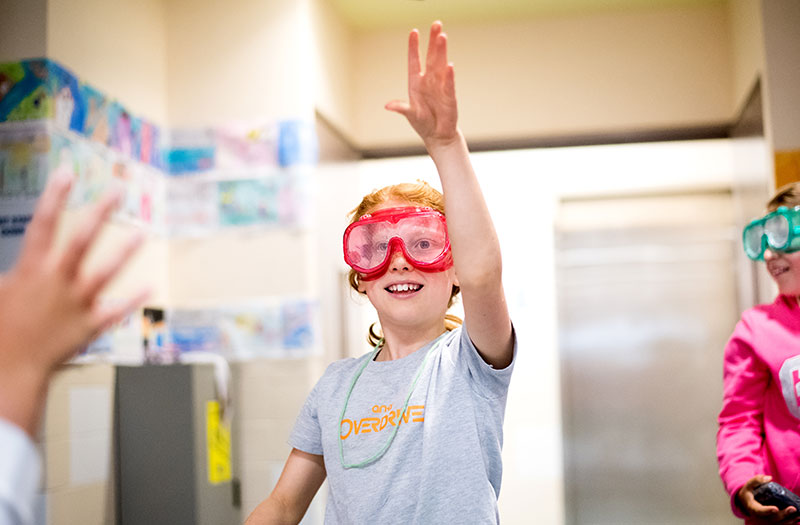The Teen Wellness Connection empowers teen leaders to understand and communicate about teen health issues. This 9-month program connects high school students with UCSF scientists and experts around health issues that directly affect teens. Under the guidance of UCSF staff, program participants plan and host a Teen Wellness Summit to inform and engage with their high school student peers. 2025-26 is the final year of this program, there will not be a summer internship for 2026.
UCSF SEP’s newest program, the Teen Wellness Connection (TWC), fosters youth leadership and public health interest as students learn about health issues facing teens. Participants collaborate with UCSF scientists and health researchers to learn about the year’s chosen topic, then create a one-day health summit for 150 high school students. TWC is a 9-month program for a team of high school students, composed of 5 Senior Leaders (rising seniors, program alumni) and 20 Junior Leaders (rising juniors). This team works together to brainstorm effective means to relay health information to their peers under the guidance of SEP staff. In order to participate, a student must be a rising junior and attend an SFUSD high school or SF charter school.
The TWC begins with a 3-week summer intensive where participants learn about the year’s health focus from UCSF experts and researchers, build community with their peers, and begin planning the summit. During the school year, participants meet regularly to continue learning, planning, and organizing for the conference. The TWC culminates in the spring with a Teen Wellness Summit, showcasing the leadership skills, collaboration, and hard work of TWC participants. This spring conference highlights scientists and health professionals as guest speakers and panelists, hosts forum discussions, and presents interactive and hands-on activities for San Francisco public high school students.
The health focus may change each year and is based on input from student participants. Our current topic is Teen Mental Health.
“Science and mental health meet in a UC San Francisco program where clinicians and researchers learn just as much from high school students as they learn from them.”
Contact: Sabine (Sabine.Jeske@ucsf.edu) or Rachel (Rachel.Harris@ucsf.edu)

All of SEP’s programs are offered free-of-charge. To do this work, SEP must annually raise nearly $2 million. Every donation brings us closer to that goal and helps to make this important work possible.

As part of UCSF, SEP is a 501(c)3 non-profit. All donations are tax deductible to the fullest extent of the law. Please let us know if your company participates in a matching gift program so that we can extend the benefit of your generosity.